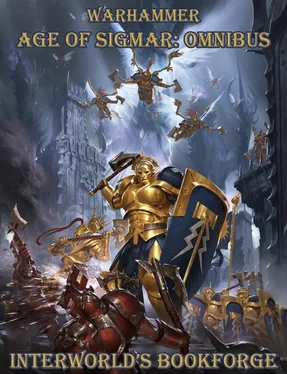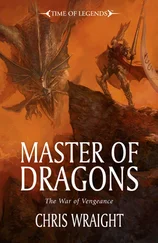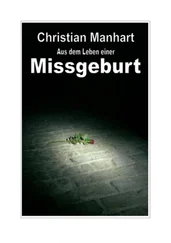The raiders had left the city itself — and that which even now slumbered beneath it — untouched, after scouring it of all mortal life. Perhaps they had deemed it unimportant, or indefensible. Regardless, they had retreated to the great sargasso, where they had raised foul citadels upon the floating weeds and left the reed-city and its hidden treasure to sit silent and undisturbed.
Until now. Until Alarielle had awoken, and her scream had set the skies to burning and the winds to roaring. As the echoes of that scream spread throughout Ghyran, the rotlings had returned in their scabrous galleys, stinking of ruin, and their return endangered the slumbering grove of hidden soulpods. Now the city shuddered in the grip of a malaise, and the waters beneath screamed without ceasing.
Moonsorrow trembled sympathetically in his grasp. He could feel the ghost of the mountain for which the sword was named stir within the blade. A sorrowful weight, a millennium of tragedy, condensed and compacted into the weapon he now held. A burden and an honour both. It sang to him sometimes, when the moonlight struck the blade just so, and the din of battle had faded.
But it was not singing now. Even if it had been, Felyndael could hear but one song — the war-song, the song of the reaping. Alarielle’s voice resounded through him, branch and root, summoning him, driving him to war. It had been centuries since he had last heard the Everqueen’s voice. It was like a gale wind, ripsawing through the realmroots. She sang and screamed and whispered all at once, crying out in wordless command.
It was a command he had no difficulty obeying. Indeed, he had never stopped fighting. Felyndael of the Fading Light had never set aside his sword, had never set down roots or shrunk into the dark and quiet like many of the others. He had fought without ceasing since the first rotling had set ragged claw on the good soil of Ghyran. And he would not stop until the last of them were mulch beneath his feet. He would not stop until they had been punished in full for their crimes against life itself.
The sword hummed in his grip, the voice of the mountain murmuring to him. Calming him, settling its weight upon the rage that rose up within him like a wildfire, snuffing it. But not for long, he suspected. It grew more difficult to ignore with every turn of the seasons. The harder he fought, the harder it became to do anything but fight.
He had become a hollow thing, burned black and made brittle by war. But he would serve until his roots shrank and his branches cracked. Calmer now, Felyndael examined the body at his feet. Why had the rotlings come back? The servants of Chaos always sought to destroy the soulpods, when they knew of them. But that was not the case here. He would have sensed it if the soulpods were in any direct danger. Something else was going on.
One of his warriors, Lathrael, stretched out her hand. The air is wrong here, she thought. Her words pulsed gravely through the connection that bound them.
It is sour, Caradrael the Scarred thought, with the mental equivalent of a shrug. Like everywhere the rotlings infest. And so? Caradrael’s bark had been kissed by fire long ago, and it had made him short-tempered. Let us kill them, and cleanse this place.
Their numbers are great, Yvael thought.
Then our vengeance will be all the greater. Caradrael’s thought was the hiss of a slashing branch.
No. Lathrael is right. It is different , Felyndael thought. Like the calm before a storm. It trembles, like a thing afraid. Wait — something is—
The air shuddered as unseen bells tolled. The sound of it was every axe-thud, every root-snap and crackle of flame. It was the sound of bark sloughing, curling, decaying and the scream of dry grass in the burgeoning. Felyndael nearly dropped Moonsorrow as he clutched at his head. The others were similarly afflicted by the droning reverberation.
As the tree-revenants recovered their wits, horns brayed in the distance, and drums thudded. The rotlings were agitated. But not, Felyndael thought, by his kin-band. Something else had come to Gramin. Come, brothers and sisters, he thought. Let us see what has our foes so excited.
Aetius Shieldborn, Liberator-Prime of the Hallowed Knights, led his warriors through the deepening murk that clogged the streets and plazas of Gramin. Three retinues of Stormcast Eternals from the Steel Souls Warrior Chamber marched in his wake. Their panoply of war gleamed silver where it was not befouled by grime and mud. Their shoulder guards were of deepest regal blue, such as the heavens themselves, as were their heavy shields, where they were not scored and marked by battle. The weapons they carried shimmered with holy fire, lighting their way through the gloom.
The Hallowed Knights were the fourth Stormhost of the First Striking, and only the faithful filled their ranks. Each warrior had called upon Sigmar’s name in battle, and each had shed their mortal flesh in the name of a righteous cause. Their courage had been proven in battles all but forgotten in the haze of their Reforging. And among the Warrior Chambers of the Faithful, the Steel Souls were pre-eminent.
For Aetius, it was not so much a matter of pride as it was a simple fact. The Steel Souls had been at the forefront of the war for the Jade Kingdoms, and the entirety of Ghyran itself. They had forged a path for their brothers to follow, hurling back the servants of the Plague God wherever they found them, from the Grove of Blighted Lanterns to the Mirkwater.
As they would do here, Sigmar willing.
Gramin had been beautiful once, Aetius thought, as he led his fellow Stormcasts through the vacant streets. The city was a living thing, shaped rather than built, and reeking of the strange magics that permeated much of this realm. Once it had been home to thousands. Now it was a husk, emptied and abandoned, and falling to the same blight which was slowly devouring all of Ghyran. Black ichor seeped from the reed-walls, and stinking water bubbled up through the mat of the street. Flies choked the air.
So far, their advance into the city had been uncontested. They had discovered great ironwood barges abandoned in the marshes and used them to reach the city. The barges now sat beside the beslimed quays of Gramin, guarded by a few volunteers from among his retinue. The outer ring of the city had devolved back into a quagmire of reeds and marsh-grass, uninhabited save by unseen beasts. But the enemy were near. The sea-wind carried with it the monotonous thud of their war-drums to Aetius’ ears.
The mortals who had once lived in this place had fought when the Rotbringers laid siege to their sea-gates and lagoon-walls. But without Sigmar to guide them, they had faltered and fallen. Those who had survived the sack that followed the shattering of the sea-gates had been taken in chains to the miasma-shrouded sargasso-citadels that now dotted the mouth of Verdant Bay like sores. There they had likely been cast into the plague-gardens as fuel for the balefires that now ceaselessly vomited pox-smoke into the skies above the marshy coastline.
But Gramin had remained, abandoned and forgotten. Until now. Until the bells. When they rang, they filled the air with their dolorous cacophony. The sound of the bells spread like a plague, stretching from the coastal marshes and onto the Plains of Vo. And the lovers-of-plague had come following it, drawn like maggots to dead flesh. Hundreds of them, moving from the north and the south, trudging towards the source of the clangour. The curse-bells, calling Nurgle’s children to war.
The rest of the chamber was to the north, somewhere on the Plains of Vo. Lord-Castellant Grymn had ordered scouting parties sent out to search for the bells while he led the other Steel Souls in battle with the migrating warbands. Numerous ruins dotted the coastline for leagues in either direction, and any one of them could have been the origin of the din.
Читать дальше












